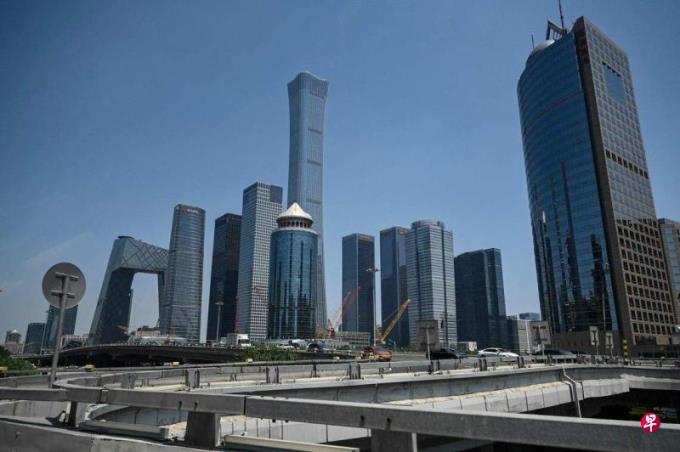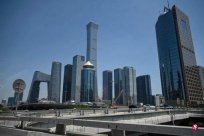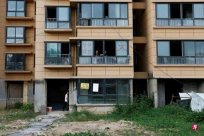
China announced the macroeconomic data in August, and the added value of industrial industries above designated size increased by 4.5%year -on -year, the largest increase since April this year; the total retail sales of social consumer goods increased by 4.6%year -on -year, the fastest since May this year.
Analysis believes that these two data exceeded expectations, showing that a series of measures to support the economy in the near future play a role. The Chinese economy is stabilizing and the consumer army is also returning.
The data released by the National Bureau of Statistics of China on Friday (September 15) shows that the added value of industrial industries above designated size in August increased by 4.5%year -on -year, 0.8 percentage points accelerated from July; and 0.5%month -on -month.
In August, the total retail sales of social consumer goods reached 37.93 billion yuan (RMB, about 712.1 billion yuan), an increase of 4.6%year -on -year, an increase of 2.1 percentage points over the previous month, and a month -on -month increase of 0.31%.
Wang Jun, chief economist of Huatai Assets, said in an interview with Lianhe Morning Post that combined with a number of data recently announced, the number of positive signals for economic recovery in the short term are increasing.
Wang Jun pointed out that especially consumption is strong, mainly related to the summer summer of August, "whether it is summer travel, catering, there are various needs, and tourism is released quickly."
In August, the national service industry production index increased by 6.8%year -on -year, 1.1 percentage points accelerated from last month. Among them, the accommodation and catering industry increased by 16.1%, ranking first in the industry.
However, Bloomberg believes that one month's data is not enough to confirm the continuous recovery trajectory, and the sustainability of consumers' expenditures in tourism and out -of -catering services such as tourism and going out of catering is doubtful.
In this regard, Wang Jun also pointed out that the Mid -Autumn Festival and China National Day holiday will play a leading role next month, but as the summer factors fade, the continuity of growth is indeed yet to be observed. "September (growth) may be better thanAugust fell slightly. "
The latest macro data boosted market confidence, and the Hong Kong Hang Seng Index rose 0.75%on Friday; however, the Shanghai and Shenzhen 300 index rose 0.4%on the morning of the morning to close 0.66%.
Wang Jun said that although the data in August has improved significantly, some aspects are still dragging back. Fixed asset investment represented by real estate investment and private investment has not stabilized.
Data show that China's real estate development investment decreased by 8.8%from January to July from January to August, further expanding, and private investment decreased by 0.7%;, The lowest since this year.
The unemployment rate decreased by 0.1 percentage points without announced the employment rate of youth
In August, the urban unemployment rate in China was 5.2%, a decrease of 0.1 percentage points from the previous month; the official has not announced the highly watched youth unemployment rate.
After breaking the new high in June this year, Chinese officials have been suspended from the grounds of improving statistical work after breaking the new high in June this year.
A spokesman for the Statistics Bureau, Fu Linghui, responded to the media related issues on Friday that from the research and data from some departments, the youth employment improved significantly in August, but no specific data was disclosed.
He also said that the Bureau of Statistics is in -depth research that if there is a new situation, it will be disclosed in time.
Wang Jun analyzed that due to the summer reasons, some demand resumed, the value of the high unemployment rate may fall, but it is believed that the improvement amplitude will not be great.
China set a 5 % annual economic growth goal in March this year.For whether the official will introduce more policies to achieve annual growth goals, Fu Linghui has not answered positively.
He emphasized that China's economy has continued to recover, and the overall recovery has improved, but it still faces problems such as insufficient market demand and difficulty in production and operation of enterprises.
Wang Jun believes that in order to achieve a strong economic rebound and achieve the annual growth rate of about 5%, the policy level also needs to continue to expand and relax at the policy level.
The People's Bank of China lowered the deposit reserve ratio of financial institutions for the second time during the year. However, Wang Jun believes that the decline in 0.25 percentage points is weaker than market expectations, and "the space for continuing to decline still exists."




